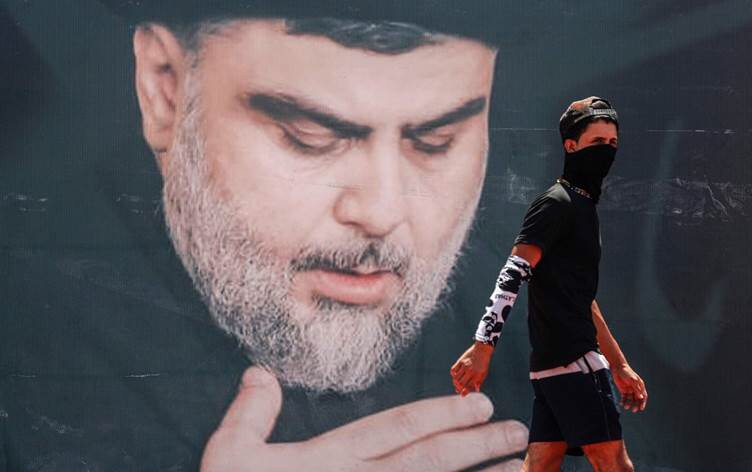
Internal Crises Threaten to Postpone Iraqi Elections
Baghdad – Asharq Al-Awsat
Friday, 13 August, 2021 – 09:45

Iraq’s Prime Minister Mustafa al-Kadhimi listens during a meeting with then-US President Donald Trump in the Oval Office at the White House in Washington, US, August 20, 2020. REUTERS/Carlos Barria/File Photo
After all recent attempts to persuade the leader of the Sadrist movement, Muqtada al-Sadr, to go back on his decision to boycott the elections, supporters and opponents alike realize that holding elections without the Shiite figure could drag the country into an unknown fate.
Despite daily statements by the Electoral Commission about completing the preparations for the elections, which are scheduled to be held in October, all sides are aware that the commission’s procedures, despite their legality, are no longer binding as long as everyone can act outside the law if they wanted. In fact, the withdrawals of al-Sadr and other parties and forces all took place after the deadline set in the electoral law.
Meanwhile, based on the map of sectarian and political distribution, no major Kurdish or Sunni political forces have announced their withdrawal from the electoral race, while the problem lies within the Shiite forces whose various currents are competing with each other.
Al-Sadr’s retreat provided these forces with an opportunity to reach out to the movement’s supporters, whose votes might be scattered and distributed among a number of other Shiite currents.
In this context, Prime Minister Mustafa Al-Kadhimi’s position seems difficult in terms of how to find an approach between all parties in order to secure the holding of the elections, which will be preceded by the Iraqi Neighborhood Summit, in addition to the National Dialogue Conference, which will bring together all political forces around one table to address outstanding crises.
Al-Kadhimi, who had succeeded in setting the date of the elections and prepared all the requirements for their success, now wants the scene to be completed through the participation of all sides, including the Sadrist movement.
While the internal crises continue, the government has achieved important external successes represented in opening up to the Arab and regional environments as well as the international community.
No comments:
Post a Comment